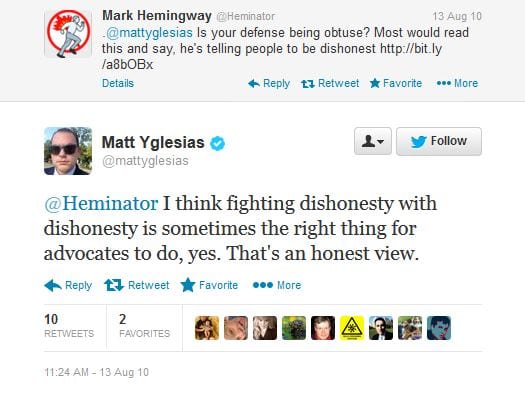ALL THE PRESIDENT’S POSTMODERNISTS: In “The day Trump killed the fact,” the Washington Post’s Alexandra Petri displays a rather short — and selective — memory:
It’s Tuesday, March 29, 2016, and facts are dead.
They had a good run.
It used to be that when people said “Who are you going to believe, me, or your own eyes?,” they were joking. Not the Donald Trump campaign. It remains stubbornly impervious to reality.
“But we have video footage of this happening,” you can say. “Look, here it is!”
“Ah,” the Trump campaign says, bending eight spoons and then vanishing into a telephone, “but what if the whole world exists only as a figment of our minds?”
The Trump campaign has been an ongoing test of how few things people are willing to Google.
But long before the rise of Donald Trump’s political career, the Washington Post has also had a casual, elastic relationship with capital-T truth. Let’s take a look at couple of their more recent lapses into postmodernism. In 2010, in response to Richard Armitage being ignored in Fair Game, Sean Penn’s film version of Valerie Plame’s memoirs, Post film critic Ann Hornaday sniffed and responded ¯\_(ツ)_/¯ :
In Washington, watching fact-based political movies has become a sport all its own, with viewers hyper-alert to mistakes, composite characters or real stories hijacked by political agendas. But what audiences often fail to take into account is that a too-literal allegiance to the facts can sometimes obscure a larger truth.
* * * * * * *
Thus, the movies about Washington that get the right stuff right — or get some stuff wrong but in the right way — become their own form of consensus history. “Follow the money,” then, assumes its own totemic truth. Ratified through repeated viewings in theaters, on Netflix and beyond, these films become a mutual exercise in creating a usable past. We watch them to be entertained, surely, and maybe educated. But we keep watching them in order to remember.
Hornaday’s article is titled “Washington-set films may fudge facts, but good ones speak to larger truths.”
That same year, Matt Yglesias, then writing columns for the pre–Bezos Post before joining GE-backed Vox.com tweeted:

And there’s that whole Watergate thing and the origins of legendary Post mole “Deep Throat,” aka disgruntled FBI agent Mark Felt, and how he was shielded for decades by the Post.
“As a famous Soviet dissident joke put it: ‘In the Soviet Union, the future is known; it’s the past which is always changing,’” Dennis Prager once wrote, and reality has been equally fungible at the Post as well. Having argued in favor of postmodernism for years, and having aggressively defended two presidents in recent memory who lived by that philosophy*, they’ve failed to notice that facts in the MSM in general and the Post specifically died long before Tuesday, March 29, 2016. Perhaps if the Post had defended truth more rigorously when it was abused by administrations that its Democrat operatives with bylines supported, the newspaper would be in a better position to complain when a presidential candidate its staff collectively loathes comes along to make a hash of it.
* To the point where Newsweek, then-owned by the Washington Post spiked its exclusive by Michael Isikoff on Bill Clinton’s oval office dalliance with Monica Lewinsky at the start of 2008, thus inadvertently fueling the meteoric rise of the Drudge Report, and at the start of 2009, perhaps declaring its own obituary before being offloaded soon after by the Post a $1.00, famously declared “We Are All Socialists Now” on its cover.
Related flashback: Washington Post cartoonist Ann Telnaes depicts children of Hispanic presidential candidate as monkeys.
